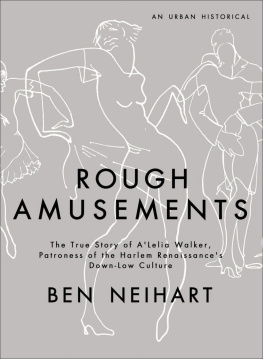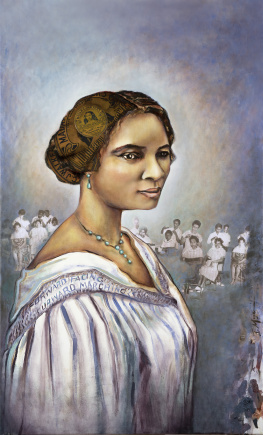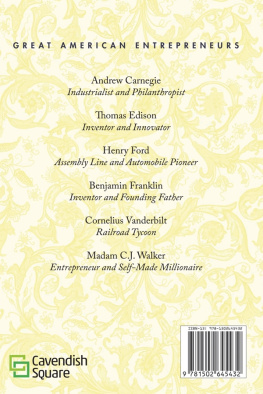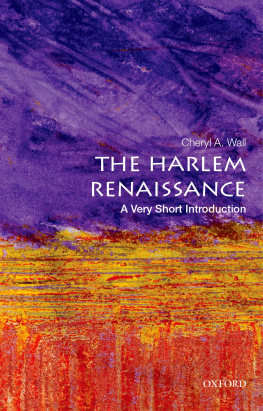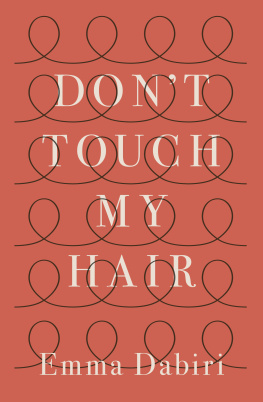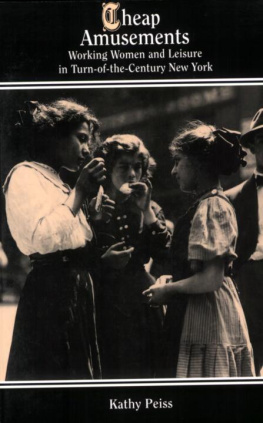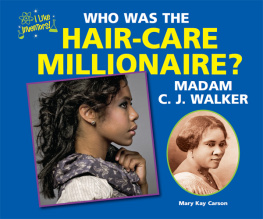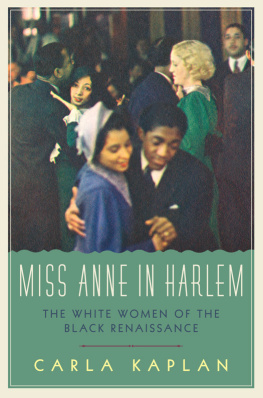Ben Neihart - Rough Amusements: The True Story of ALelia Walker, Patroness of the Harlem Renaissances Down-Low Culture
Here you can read online Ben Neihart - Rough Amusements: The True Story of ALelia Walker, Patroness of the Harlem Renaissances Down-Low Culture full text of the book (entire story) in english for free. Download pdf and epub, get meaning, cover and reviews about this ebook. year: 2008, publisher: Bloomsbury Publishing, genre: Art. Description of the work, (preface) as well as reviews are available. Best literature library LitArk.com created for fans of good reading and offers a wide selection of genres:
Romance novel
Science fiction
Adventure
Detective
Science
History
Home and family
Prose
Art
Politics
Computer
Non-fiction
Religion
Business
Children
Humor
Choose a favorite category and find really read worthwhile books. Enjoy immersion in the world of imagination, feel the emotions of the characters or learn something new for yourself, make an fascinating discovery.
- Book:Rough Amusements: The True Story of ALelia Walker, Patroness of the Harlem Renaissances Down-Low Culture
- Author:
- Publisher:Bloomsbury Publishing
- Genre:
- Year:2008
- Rating:4 / 5
- Favourites:Add to favourites
- Your mark:
Rough Amusements: The True Story of ALelia Walker, Patroness of the Harlem Renaissances Down-Low Culture: summary, description and annotation
We offer to read an annotation, description, summary or preface (depends on what the author of the book "Rough Amusements: The True Story of ALelia Walker, Patroness of the Harlem Renaissances Down-Low Culture" wrote himself). If you haven't found the necessary information about the book — write in the comments, we will try to find it.
When ALelia Walker died in 1931 after a midnight snack of lobster and chocolate cake washed down with champagne, it marked the end of one of the most striking social careers in New Yorks history. The daughter of rags-to-riches multi-millionaire Madame C.J. Walker (the washerwoman who marketed the most successful straightening technique for African American hair), ALelia was Americas first black poor little rich girl, using her inheritance to throw elaborate, celebrity-packed parties in her Westchester Mansion and her 136th Street would-be salon, Dark Tower. In Rough Amusements, third in Bloomsburys Urban Historicals series, Neihart takes us into the heart of ALelias world-gay Harlem in the 1920s. In tracing its cultural antecedents, he delves into the sexual subculture of nineteenth-century New York, exploring mixed-race prostitution; the bachelorization of New York society; French Balls (the most sophisticated forum for testing the boundaries of urban sexual behavior); and The Slide (New Yorks most depraved nineteenth-century bar). Using ALelias lavish parties as a jumping-off point, Neihart traces the line connecting Davy Crocketts world without women to Walt Whitmans boundless love of beautiful men to ALelias cultivation of the racial, social, and sexual risk that defined the Harlem Renaissance. Ben Neihart is the author of the novels Hey, Joe and Burning Girl. His writing has appeared in such publications as The New Yorker, Travel & Leisure, The Baltimore Sun, and Book Forum. He lives in Brooklyn. Author photo: Frank Ockenfels Praise for Hey, Joe A touching, even soothing affirmation of the magic wisdom of youth.-The New York Times Book Review A feast of vibrant imagery and spicy dialogue against a mellow backdrop of a sleepy summer evening in New Orleans.-The Washington Post Praise for Burning Girl Neihart sets this story up nicely, drawing fresh, vigorous charac From acclaimed novelist Ben Neihart, a vibrant portrait of gay Harlems most memorable diva: ALelia Walker.
Ben Neihart: author's other books
Who wrote Rough Amusements: The True Story of ALelia Walker, Patroness of the Harlem Renaissances Down-Low Culture? Find out the surname, the name of the author of the book and a list of all author's works by series.

